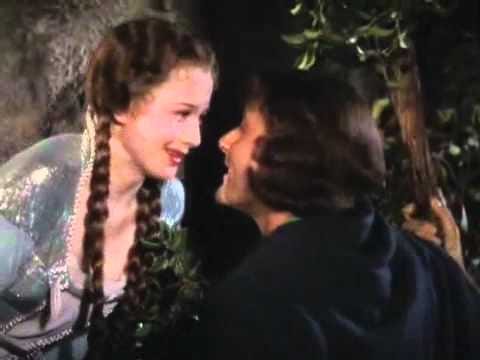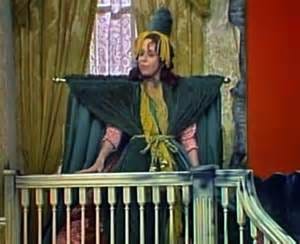Richard Chamberlain died at the age of 90. He was at one time a teen heartthrob, starring in the TV show Dr. Kildare. I remember one girl in my elementary school who had a Dr. Kildare lunch pail. I had Zorro on mine.
I respected Chamberlain for his dedication to his craft. After Dr. Kildare ended, he went to England to study. He returned as a fine stage actor and “the king of the miniseries,” such as The Thorn Birds and Shogun. He had a prosperous career and acted well into his 80s.
He also had a brother, Bill, who coached me in Little League. Bill was even more handsome than Richard. Good genes in that family.
Once, Bill asked me if I wanted to be a baseball player when I grew up. I said, “No, I want to be a lover.”
He howled with laughter. “I’m with you!”
I was all of twelve years old. But I dug Errol Flynn, especially in The Adventures of Robin Hood (1938), and wanted to woo a maid as beautiful as Olivia de Havilland. (Later I got that chance, and married the girl. That was 44 years ago and I’m still in love.)
Flynn himself was a fine actor, but a notorious rake offscreen. He lost a step or two after the war, though he’s still in good form in The Adventures of Don Juan (1948).
In the 1950s, puffy from drink, he could still act, and is superb in a supporting role in The Sun Also Rises (1957). A proposed sequel about a humble baker, The Dough Also Rises, was never made.
There are other things that should never be made. Beet juice, a remake of Casablanca or a sequel to Gone With the Wind (there was an attempt at this, in the 1990s, but I never read it. I’ve heard it’s about Scarlett going into the window drapes business, then finding Rhett in Charleston performing with a musical troupe called The Harmonica Rascals).
Speaking of harmonicas (and I was), they are played by breath, putting it among the bravest of all musical instruments, for it can withstand the stink of garlic, onions, sardines, cheap cigars, hot sauce and gastric juices. It laughs at halitosis. It fears not gingivitis.
Its origins can be traced back to ancient China and an instrument called the sheng (trans: vibrating reed thingy). The Germans took it over (as they are wont to do) and developed the modern mouth organ in the early 1800s. It came over to America and was popular during the Civil War, around campfires, helping to drown out the sounds made after a meal of beans and bacon. (Remember that campfire scene in Blazing Saddles? That was actually documentary footage.)
The harmonica also made its way into prison movies, usually as some guy was about to be marched off to the electric chair. I will not repeat the joke about the guy who bought his mother-in-law a chair, and complained that she won’t plug it in. That would be distasteful. To be fair, there are plenty of husband jokes, too, e.g.,
“I have a model husband. He’s just not a working model.”
There are many poems and books about love and romance, but not many about marriage. We all know that marriage has its challenges. I like to imagine what might have happened if Jack had survived the sinking of the Titanic. A year later Rose would be saying, “Will you go out and get a job already? And stop sketching me as I get out of the shower! And if I catch you gambling again, you’re out on your ear!”
See, I’m a romantic at heart.
Being “out on your ear” is slang of unknown origin, though we find it being well-used in the early 20th century. It may have had something to do with pratfall in Vaudeville. It’s a funny and ignominious way to land.
People used to say “Keep your ear to the ground,” which means be alert to things going on around you, things that might indicate change or trouble coming. They also used to say, “Keep your nose to the grindstone.” Impossible! Have you ever tried keeping your nose to the grindstone with your ear on the ground?
“Ear of corn,” by the way, has nothing to do with the canals on the sides of our head, the word ear deriving from an Old English word for husk.
Which brings up the phrase, “He’s a husk of his former self,” which is something you never want to be. So keep your mind vibrant and curious, and do what you can to maintain a healthy husk. Clint Eastwood has a healthy husk, at age 94. Once, singer Toby Keith asked him how he keeps going, and Eastwood replied:
Every day when I wake up, I don’t let the old man in. My secret has been the same since 1959—staying busy. I never let the old man into the house. I’ve had to drag him out because he was already comfortably settled, bothering me all the time, leaving no space for anything other than nostalgia. You have to stay active, alive, happy, strong, and capable. It’s in us, in our intelligence, attitude, and mentality. We are young, regardless of our ID. We must learn to fight to not let the old man in.
That’s a fight worth having. Winston Churchill was 65 when he became Prime Minister of England at the beginning of World War II. He’d had a colorful life, with plenty of ups and downs. In his magnificent history of the war, he recounts the moment he assumed power. “I felt as if I were walking with destiny, and that all my past life had been but a preparation for this hour and for this trial.”
Your life has prepped you, too. This is your moment.
Quote of the Week: “The hardest years in life are those between ten and seventy.” —Helen Hayes, age 83







Speaking of old men, I sometimes play golf with an 88-year-old man, named Rich. He and I are part of a golf club that plays once a week. Unlike many of the younger guys, Rich walks the entire 18-hole course, which is probably about 4 miles in total length. He drives the ball nearly as far I do, about 200 yards. His short game is sharp, and I have yet to beat him. I tell Rich, "When I grow up, I want to be just like you."
A friend of mine asked me recently what age did I consider to be "old age." I said it's been the same answer all my life: ten years older than I am.